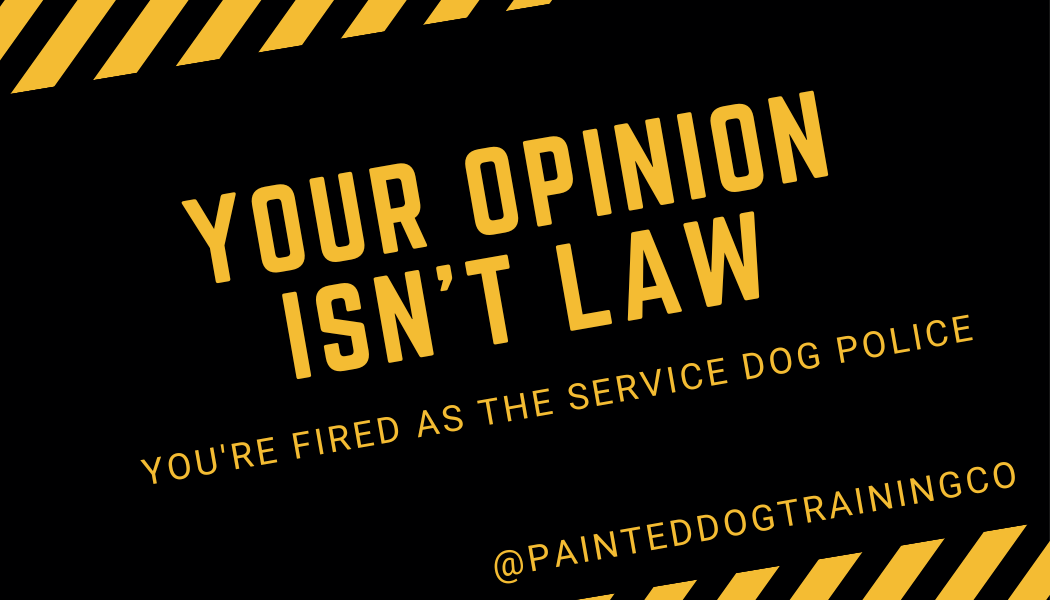Service dogs are a vital tool for people with disabilities, offering independence and safety. Yet, even moreso in recent times, a disturbing trend has emerged: individuals posing as authority figures and inventing arbitrary rules for service dogs, often presenting them as legitimate laws. This behavior is not just inconvenient, it’s ableist, creates confusion, and poses safety risks.
Check out our line of snarky dog handler gear!
Firstly, fabricating service dog rules is inherently ableist. Disabilities are a spectrum, and the needs of a handler and their service dog will vary. Invented rules, like requiring vests or specific breeds, disregard these individual needs. A handler with a seizure disorder might require their dog to be constantly by their side, a leash becoming a hindrance in an emergency. Arbitrary breed restrictions exclude qualified dogs perfectly suited for their tasks. This undermines the very purpose of service animals – to empower individuals with disabilities, not restrict them with unfounded regulations based on nothing. It also often makes handlers feel like they HAVE to buy certain gear to be legitimate and this is not the case.
Secondly, these invented rules create confusion for the public. Legitimate service dog laws are clear: service animals must be individually trained to perform tasks to mitigate a disability and under control. Businesses cannot ask for proof of training or bar specific breeds, nor require certain gear. When people make up rules, it becomes difficult for both the public and handlers to know what’s actually legal. This confusion can lead to confrontations, unnecessary denials of entry, and a general sense of distrust towards legitimate service dog teams.
Perhaps the most concerning aspect of inventing service dog rules is the potential for safety risks. A handler experiencing a medical episode might rely on their dog for assistance, but fabricated leash laws or restrictions on where the dog can go could hinder the dog’s ability to perform its tasks. In some cases, it could even put the handler at risk if their dog is unable to provide the necessary assistance due to fabricated rules, or put the dog at risk if it cannot move away from the handler as they fall or whatever else.
Here’s the bottom line: your opinion is not law, and your comfort level does not supersede disability rights. We all have a responsibility to respect legitimate service dog teams. If you have questions about service dogs, educate yourself on the ADA.
What You Can Do:
* Educate yourself: Learn the actual laws regarding service animals.
* Be respectful: If you are unsure about a dog’s status, politely ask the handler if it’s a service animal and what task it performs. The law only allows for these two questions.
* Focus on behavior: If a dog is exhibiting disruptive behavior, by all means, address it with the handler. However, don’t make assumptions about a dog’s legitimacy based on appearance or breed alone.
Remember, service dogs are an extension of their handler’s right to public access. Let’s work together to create a more inclusive and informed environment for everyone, and not make things up that make life harder for the disabled community. Speak up when you see folks making up rules and pretending they are law.




